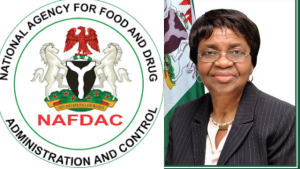NDDC Youth Internship Scheme: Commission budgets N6 Billion to Pay 10,000 Youths
NDDC Youth Internship Scheme to Pay 10,000 Youths N6 Billion in 12 Months
In Nigeria, as in many other parts of the world, the success of democracy is thought to hinge on the openness, reliability, appropriateness, responsiveness, and bidirectional nature of its communication environment. Democracy thrives on the continuous exchange of signals—not only between the people and their elected representatives but also among the citizens themselves.
This belief was substantiated by the widespread discussions among Niger Deltans following the Senate President, Godswill Akpabio’s launch of a Youth Internship Scheme by the Niger Delta Development Commission (NDDC). This initiative aims to benefit 10,000 youths from the Niger Delta region, inaugurated in Port Harcourt, Rivers State.
To grasp the significance of this initiative, one must first acknowledge Nigeria’s vast landscape and its myriad challenges that hinder progress. Among these challenges, youth unemployment stands out as the most pernicious. The unemployment crisis has not only resisted numerous solutions but has also continued to escalate over recent decades.
Despite various administrations’ efforts to curb this issue, many attempts have fallen short due to unclear problem definitions, ambiguous goals, and inadequate interim support for the unemployed, such as food and security provisions. For example, previous empowerment initiatives under the government’s Social Investment Programme failed to deliver promised benefits due to poor logistical planning and insufficient support for trainees.
In contrast, the NDDC’s Youth Internship Scheme offers a promising new approach. According to the Senate President, the programme will engage 10,000 youths, paying them N50,000 monthly. “President Bola Ahmed Tinubu is committed to the development of the Niger Delta region,” he stated, emphasizing the program’s goal to develop the skills of these youths and highlighting a sustainable method of empowerment.
Unlike previous initiatives, this scheme brings training locations closer to participants, making it more accessible. The NDDC’s governing board and management recognize that youth empowerment and job creation are essential for national development and democracy. This understanding is reflected in their comprehensive approach, which goes beyond political considerations to address regional and national development.
Additionally, the Senate President commended the NDDC for restoring sections of the East-West Road and launching five flagship projects, including roads, bridges, and electricity infrastructure, following a presidential directive. This commitment extends to the Lagos-Calabar Coastal Road project, which will begin simultaneously from Lagos and the Niger Delta.
The Chairman of the NDDC Governing Board, Mr. Chiedu Ebie, emphasized the Commission’s dedication to completing capital projects that add value to the Niger Delta region. “Our commitment is to work towards transforming the region, in line with the 8-Point Presidential Priorities, as well as in accordance with the demands of the NDDC Act of 2000,” Ebie highlighted, expressing gratitude for the swift passage of the 2024 budget, which facilitates the implementation of beneficial projects and programs.
Dr. Samuel Ogbuku, NDDC Managing Director, noted the region’s shift from militant agitation to intellectual struggle, resulting in significant benefits. “We have provided more opportunities and hope to Niger Delta youths through our Holistic Opportunity Projects of Engagement, designed to identify youth interests for skills training,” he remarked. Ogbuku mentioned Project HOPE, which develops a comprehensive digital repository of the qualifications, skills, interests, needs, and current employment status of the youths of the Niger Delta region.
Also Read: Budget: NDDC to Borrow N1 Trillion for “Legacy Projects” in Niger Delta
For the youths of the Niger Delta to overcome unemployment, they must embrace the transition to a knowledge-based society, shun instant gratification, and resist negative influences from social media. The Federal Government should replicate the NDDC’s youth empowerment model across other regions of the country to address youth unemployment comprehensively.
In conclusion, the NDDC’s Internship Scheme marks a significant departure from past efforts, offering new and substantial opportunities for the youth of the Niger Delta. This initiative represents a visionary and sustainable approach to youth empowerment, setting a precedent for future efforts nationwide.













